Golden rules for healthy lockdown skin
And why medical grade skincare is so important
Many of us have found that our skin hasn’t exactly thrived during lockdown but the road map to recovery gives cause for optimism, and our complexions can’t wait. In preparation for that joyous release what skincare should we be using to make sure we emerge looking radiant and youthful?
Dr Uliana Gout of London Aesthetic Medicine offers evidence-based answers to your frequently asked questions…
What cleanser will improve my lockdown skin? Cleansing is so important, in or out of lockdown. It only takes a few seconds morning and night but the benefits are huge.
In terms of exfoliation, the process by which you remove dead skin cells and encourage new cells to regenerate–something the skin does naturally over the course of approximately 4 weeks–try to avoid exfoliators that rely on mechanical action or abrasion that could damage your skin and create inflammation.
My preference would be cleansers and exfoliators that contain medical grade lipophilic ingredients that chemically alter the structure and behaviour of your skin rather than use friction to brush away dead cells.
There are essentially two types of medical grade cleansers –lipophilic and hydrophilic –but choosing one can be incredibly confusing because there are so many active ingredients used in so many different combinations. Part of our role at LAM is to advise youon the ingredients that will get the best results, the products best suitedto your skin pH, the percentage of an ingredient that will get best results, the dosage to use.
What we want to minimise is ‘downtime’ –the wasted time when your skin is adjusting to an active ingredient. Because a lot of us, understandably, are tempted to use the latest ‘hot’ product but if the ingredients in that product cause our skin to react badly it will take far longer to achieve that clarity we all crave. So many women spend time yo-yoing between brands and products and it can be very frustrating.We do all those checks first. The due diligence, if you like.
If your skin is in bad shape after months of lockdown you might also try double cleansing. The first cleanse removes oils sitting on the skin surface, which means on the second cleanse you have access to the impurities that are sitting a little deeper.
And avoid soap on your face. Most skin-conscious women know that soaps aren’t a good idea but it’s worth repeating: detergents like sodium laureth suflate (SLES) are really not going to do your complexion any favours.
I am getting very dry/oily skin; where am I going wrong with my moisturising routine?
Skincare goes through fads when certain product or types of products become fashionable, and in recent times I’ve noticed a lot of skin ‘experts’ advocating the use of oil-based moisturisers. They might suit your skin, but applying more oils might also create congestion, blocking pores, resulting in spots, inflammation or dry patches.
Again, it’s all about finding what works for your skin, and most of us don’t really understand our skin. We just apply and hope. There are so many factors to consider when it comes to how skin responds to hydration. Genetics and hormonal activity can have a big effect but so can the environment; if, for example, you’re in an air-conditioned office all day, your skin is more likely to dry out faster. Likewise, if you’re travelling frequently; or if you’re in the sun a lot.
Essentially, there are three types of moisturiser: humectants such as glycerin and hyaluronic that draw water from the lower layers of the skin, emollients, which soften and hydrate from the outside, and occlusives like shea butter or petrolatum that lock in moisture by creating a barrier. At LAM we prefer to work with humectants which we tailor to your specific needs.
That’s why we always insist on lengthy hyper-personalised consultations, to get to know you and your skin better. Armed with that one-to-one skin knowledge we can recommend an effective moisturising routine.
I am noticing pigment spots all over my face; what can I do for a more even complexion?
Firstly, don’t worry. Pigmentation issues are common and we’re noticing more during lockdown, possibly because our skincare routines are disrupted or our lifestyle has changed. The good news is that most pigmentation issues can be corrected, but only by using medical grade ingredients. I can’t emphasise enough how important it is to use products that don’t just pamper but actually change the structure and activity in your skin.
There are a huge number of depigmenting ingredients such as Kojic preparations to treat what you call ‘pigment spots’. At LAM we would devise a routinetailored to your needs including moisturisers, cleansers, exfoliators, collogen inducers and depigmenters as well aseven the odd pampering treatmentsuch as hydrating facial and clay masks. We would also recommend a facial in the clinic with medical grade skincare.
I am noticing my wrinkles more than ever before thanks to Zoom face – what really does work to smooth and tighten my skin?
Ah, the dreaded Zoom face. During lockdown many of us have been spending more time in front of a screen than ever before. We pick up bad habits when peering into the screen that can exacerbate wrinkles by over-exercising facialmuscles we wouldn’t normally work so hard.
Some cosmetic moisturisers might plump up the skin temporarily to make it look like you have fewer lines but moisturising too much can cause congestion so again, for real change, I would advocate the use of medical grade ingredients.
Collagen induction is the key for limiting the appearance of wrinkles. Collagen is the protein that is found naturally in skin as well as other tissues –pretty much everywhere in the body where structure is required, and cells need to be bound together. When you age, collagen depletes and in skin that results in reduced elasticity. Slack skin means more lines.
At LAM we can recommend collagen-boosting creams and serums that are formulated at a strength that will make a difference but topical application is just one option. Many of my patients use topical medical grade anti-ageing skincarein conjunction with injectable treatments. We will develop a skincare strategy that suits your skin and your lifestyle best
Everyone is talking about antioxidant skincare; how do I make the right choice?
Reducing what we skin scientists call ‘oxidative stress’ can have a transformative effect on skin clarity, which is the goal we have,in or out of lockdown. We all want clear skin, free of spotsand blemishes, even in tone with that fresh-faced ‘youthful’ radiance. At LAM we talk about natural beauty, finding the ‘charisma’ in your face; it’s just a question of working out the best way toreveal it. Antioxidants may well be part of your wellness strategy.
There are a huge number of antioxidants around these days,vitamin C being one of the more commonly discussed. Their key goal is to stabilisemolecules disturbed by free radicals. The evidence seems clear: the more protection you can provide, the better.
But antioxidants only work at a high strengthand only when stabilised in medical grade skincare. Stability is so important. Not many people realise how quickly active ingredients can deteriorate and lose potency. There’s no point spending a lot of money on a product that will be useless the day after you’ve opened it.
If your lockdown skin is in need of a lift, or you think you need a clear skincare strategy devised by Dr Gout and her team then why not book a 45-minute hyper-personalised consultationat the LAM Clinic. We’ll recommend gold standard, medical grade skincare that is right for you, and guide and support you on your wellness journey.

